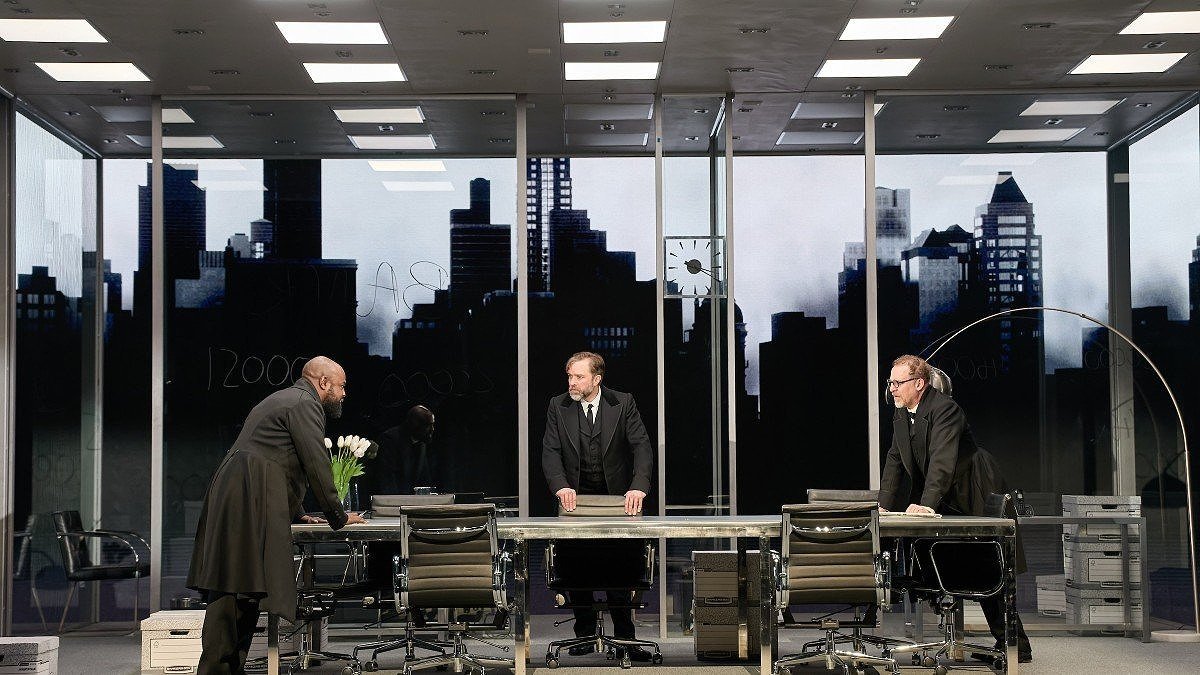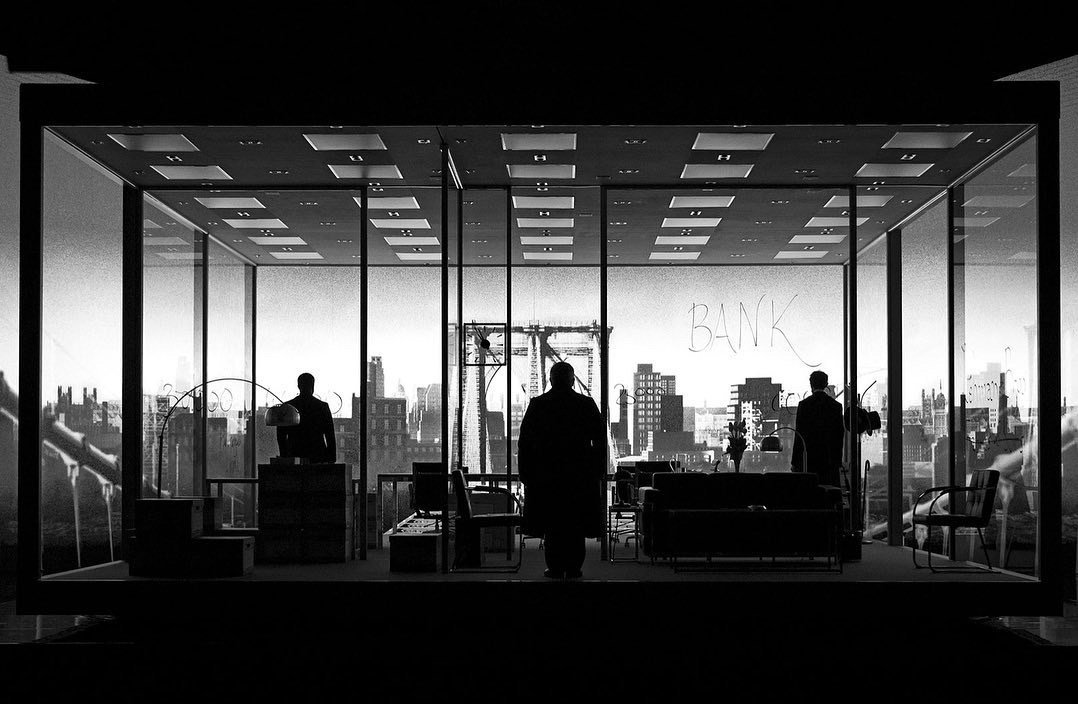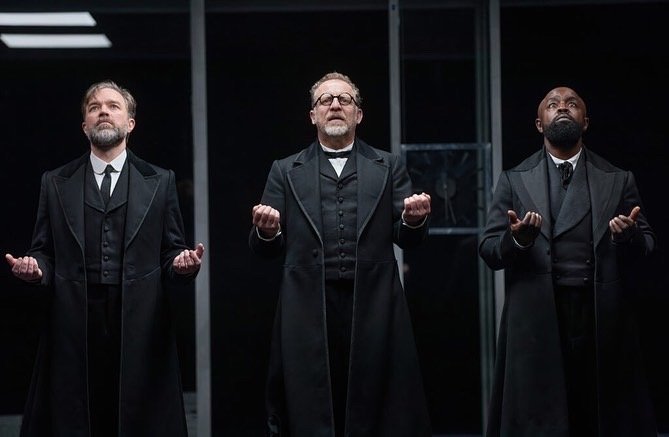Covering three generations of family history over 164 years, The Lehman Trilogy is an epic story of vaulting ambition and mounting greed that’s conquered theatres from the Southbank to Broadway since premiering in 2018.
I had heard great things about Es Devlin’s stage design, in particular – pairing a rotating, open-office construction (all glass panels, filing boxes and little else) with a panoramic Luke Halls video projection of skylines and more behind. So I picked up a reasonably priced ticket for the current run at the Gillian Lynne Theatre.
Most of us are familiar with Lehman Brothers, once the fourth biggest bank in the US and whose collapse was integral to the 2008 financial crash. I wanted to know how we got there, and indeed how the Lehmans came to New York from Bavaria via the plantations of Alabama. So if you too are up for a dynamic history lesson with a side order of sibling rivalry then get yourself down there before June … and buckle up.
Clocking in at more than three hours, the production features a three-man cast of Nigel Lindsay (Broken Glass, The Pillowman, Four Lions), Michael Balogun (Macbeth, Barbershop Chronicles, Blue/Orange) and Hadley Fraser (Les Misérables, City of Angels, The Deep Blue Sea) who excel at playing umpteen characters in the most chameleonic and rapid-fire fashion, from stubborn or combative board types to flirtatious dames and petulant children.
Following the company’s evolution as traders in fabrics, raw cotton, coffee, cash then stocks and shares feels logical and astonishing at the same time. (We should probably add human beings to that list, says Professor Sarah Churchwell, though the play is rather silent on the matter.) The family managed, in different ways, to fulfil, flog and repackage the American Dream. One that had a familiar gleam, a sure thing-ness and insatiability about it every time.
Looking into their crystal ball, they said you too can make it, trust me, but act now or miss out. Lehman gets rich in the process and as a result, they only want to get richer while the get-rich philosophy in a capitalist society brings more fresh fish to the trawler. But there’s only one problem as Lindsay points out while in narrator mode: “What happens if they stop believing?”
Sam Mendes’ direction instills poise at certain moments and frenzy at others. I like the use of magic marker scrawlings on the glass panels to signify the changing name and focus of the company, minimising the need for too many props or complex set changes, which would break the momentum. However, more pauses to catch our breathe would have been welcomed. Make no mistake, this production is relentless and always moving.
The pianist accompanying the actors with Nick Powell’s score, Erika Gundesen, was delightful and even partook in a little comedy where the story touches on one of the brothers’ efforts to learn the instrument in a very plodding manner. It’s a rights of passage, right. Together with the sound design elements, Powell’s score manages to both evoke the world of period drama and convey that sense of dark clouds overhead. There is a foreboding in the air.
I had a fidgety, flustered woman beside me who kept complaining about all the exposition in the script, questioning the importance of relaying events in such a play-by-play manner. Clearly, she didn’t know what she was getting into. Check the running time. “Epic” is unofficially in the title.
That said, playwright Ben Power’s adaptation of the Stefano Massini novel could do with an edit. At times, it felt more like listening to an in-depth podcast series than watching a play. On the flip side, the lengthy duration will give you more opportunities to marvel at the actors – their energy, endurance and elasticity. And how the stage, the “fourth dancer” as Devlin calls it, is constructed in a minimalist way to let them shine in each of their many roles from different perspectives.
Tickets (closes 20 May)



